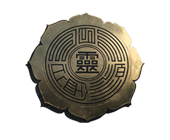People feel greater joy in a word or bit of kindness from an unrelated person than from the abounding love of their parents.
How do people judge the value of a thing? How they feel about a thing, depends on how much it changes their present situation. Even if something is marvelous, people will stop appreciating it when it remains in the same state, without either increasing or decreasing.
For example, everyone begins life totally supported by their parents. But let’s say a person graduates from college, finds a job, and begins to earn their own money. One would feel very good about that, no matter how much or how little they are being paid. But after a while, they compare themselves to others who are earning more than they are, and dissatisfaction creeps in. If they achieve a raise, they feel satisfied again, but only for a while. They stop appreciating the new, higher wage, because they have become accustomed to it.
Let’s talk about how people value things that are rare, versus things that are abundant. People place a very high value on diamonds. Diamonds are not necessary for human life, yet a very high value is placed upon them because they are rare. By contrast, air and water are critical for human life. We cannot live for more than a few minutes without air; we cannot live more than a few days without water. But nature supplies us in abundance with the elements that sustain human life. Water and air are available to all, whether high or low in social stations, whether rich or poor. In fact, there is an old Japanese saying describing wastefulness as “using things like water,” showing that when something is abundant, we stop placing a high value on it.
Parental kindness, like air and water, is always plentiful. If a child kicks off its covers while sleeping, looks ill, or if anything at all should go wrong, the parents will always take care of it, with more concern than for themselves. Because parental love and concern is ever present, it is easy for a child to take it for granted, and no longer appreciate it, or sense its great value.
People can also become accustomed to difficult situations that stay the same over a period of time, like chronic illness. But if they receive kind words, or a gift for an unrelated person, they feel great happiness over the kindness of that moment, and their heart is filled with gratitude.
Unlike animals, human beings have an awareness that enables us to accurately assess the true value of things. Yet if something is consistent or abundant, people can easily underrate and underappreciate it. But they should not. People need to accurately recognize and cherish those things which are of great value, and treat them with importance. It is the most functional way for humans to live.
